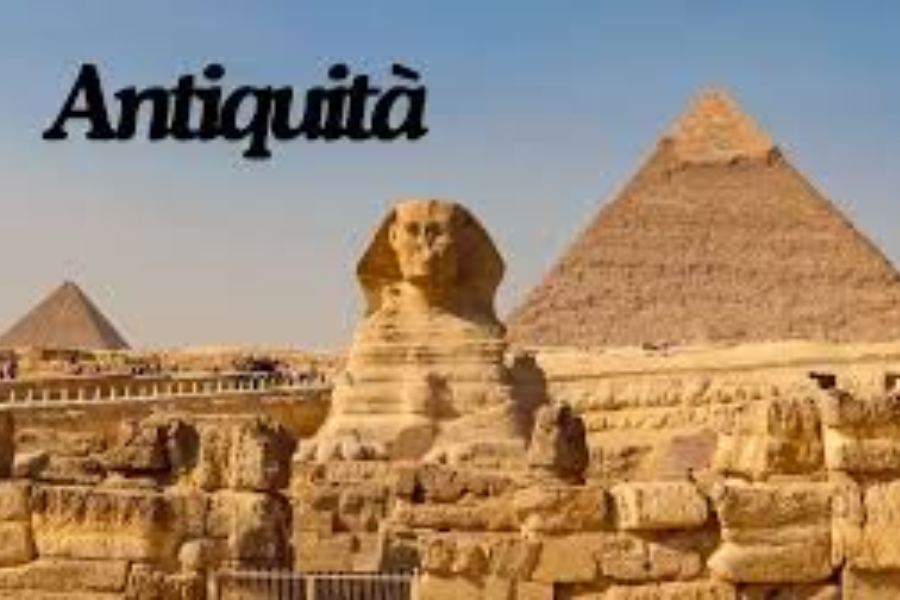Antiquità, the era that predates the Middle Ages, forms the bedrock upon which modern civilization was built. Spanning from the dawn of recorded history to the fall of the Roman Empire in the 5th century AD, this era is marked by the rise and fall of powerful empires, pioneering advancements in art and science, and the emergence of philosophies and spiritual beliefs that continue to shape today’s world. Here, we journey through antiquità, exploring the significant civilizations, their remarkable achievements, and the enduring legacy they left behind.
The Origins of Civilization: Mesopotamia and Egypt
The fertile lands between the Tigris and Euphrates rivers, known as Mesopotamia, are often celebrated as the birthplace of civilization. Around 3500 BC, the Sumerians established one of the first organized societies here, introducing critical innovations such as writing (cuneiform), the wheel, and the concept of urban centers. The Sumerians’ legal frameworks, like the Code of Ur-Nammu and later Babylon’s Code of Hammurabi, laid essential foundations for modern legal systems.
Simultaneously, the ancient Egyptians built a thriving civilization along the Nile River. They are renowned for iconic architectural feats such as the Giza pyramids and the magnificent temples of Karnak and Luxor. Their advancements in mathematics, medicine, and engineering were transformative. The practice of mummification and its insight into human anatomy is particularly remarkable. Egyptian art and hieroglyphic inscriptions provide a vivid account of their beliefs and social practices, leaving a lasting cultural heritage.
A Revolution in Thought: Ancient Greece
The intellectual achievements of ancient Greece have profoundly impacted Western thought. In the city-state of Athens, thinkers like Socrates, Plato, and Aristotle laid the groundwork for modern philosophy, developing ideas that would guide ethical and logical reasoning for centuries. Socratic questioning, Platonic ideals, and Aristotelian logic are still integral to modern education and philosophy.
Greek advancements also extended to science and mathematics. Figures like Pythagoras, Euclid, and Archimedes made discoveries that continue to influence fields today. In astronomy, Aristarchus’ heliocentric theory foreshadowed later scientific breakthroughs.
Greek culture celebrated the human experience through literature, theater, and the arts. The epic poetry of Homer, the tragedies of Sophocles and Euripides, and the historical works of Herodotus and Thucydides established a foundation for global literature. Greek art, particularly in sculpture and architecture, introduced ideals of symmetry and beauty that shaped artistic standards across millennia.
The Rise of Rome
Rome’s ascent marked the culmination of ancient civilization, evolving from a small city-state in 753 BC to a vast empire spanning Europe, North Africa, and the Near East. The Roman Republic and later the Empire developed a governance model that has influenced political theory and institutions to this day.
Roman law, enshrined in the Twelve Tables and later in Justinian’s Corpus Juris Civilis, became a cornerstone for legal systems worldwide. The Romans were also masterful builders and engineers, creating enduring infrastructure such as aqueducts, roads, and monumental structures like the Colosseum. Their innovations in construction, including the use of concrete, enabled large-scale public works with remarkable durability.
Rome was culturally diverse, integrating and adapting influences from the cultures it encountered, especially Greece. While Roman literature, art, and architecture drew heavily from Greek models, they developed their distinct style, exemplified in works like Virgil’s Aeneid, which articulated Roman values and ideals.
Developments in the Far East: China and India
While Mediterranean civilizations often dominate discussions of antiquità, equally significant advances occurred in the Far East. Ancient China, under various dynasties, made profound contributions to human progress. The Shang Dynasty (c. 1600–1046 BC) witnessed the early development of Chinese script, bronze craftsmanship, and religious practices.
The Zhou Dynasty (1046–256 BC) introduced the Mandate of Heaven, a concept justifying rulers’ divine authority. During this period, Chinese philosophy flourished, with Confucianism and Daoism offering insights into ethics, governance, and the natural order. The Qin Dynasty (221–206 BC) united China, standardizing writing, currency, and measurements, and initiated the Great Wall’s construction.
In India, the ancient Indus Valley Civilization (c. 3300–1300 BC) is notable for its advanced urban planning and drainage systems. The subsequent Vedic period (c. 1500–500 BC) laid the foundation for Hinduism and the social structures that have shaped Indian society.
The Maurya (c. 322–185 BC) and Gupta (c. 320–550 AD) Empires represent high points in ancient Indian history. Under Emperor Ashoka, the Mauryan Empire embraced Buddhism and spread its teachings across Asia. The Gupta era, often described as a golden age, brought significant achievements in science, mathematics, astronomy, and literature.
Lasting Legacies of Antiquità
The legacies of antiquità are deeply woven into the modern world. Concepts of democracy and republican governance, first practiced in Athens and Rome, continue to influence contemporary politics. The philosophical ideas developed by Greek thinkers form the foundation of Western intellectual tradition, while Roman law remains a basis for legal frameworks worldwide.
Advances in science and technology from ancient civilizations laid the groundwork for modern disciplines. The mathematical theories of the Greeks and Indians, Roman engineering, and Chinese astronomical observations were cornerstones for later developments.
Culturally, the artistic and literary achievements of antiquità continue to inspire. The epics of Homer, the tragedies of Sophocles, and Virgil’s poetry are still central to global literature. Architectural wonders from Egypt, Greece, and Rome stand as enduring symbols of human creativity and skill.
Conclusion
The era of antiquità was one of extraordinary human achievement and creativity. The civilizations that flourished during this time laid foundational elements of modern society. From legal and political systems to scientific concepts and artistic expression, the achievements of ancient societies resonate throughout the world. Reflecting on antiquità deepens our appreciation of the enduring legacies of our ancestors and the remarkable journey of human civilization.
Stay Updated with the Latest Trends and Insights at latestsession

